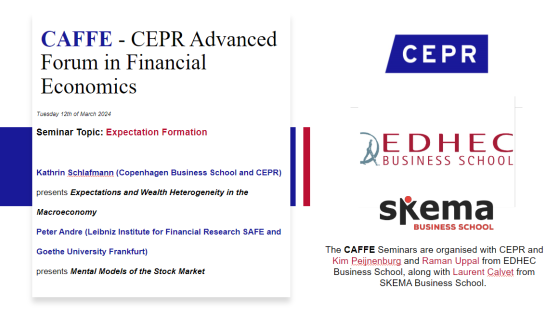DP3195 Psychological Traits and Trading Strategies
In this Paper we measure psychological traits and show that they significantly affect behaviour and performance in a financial context. Based on the answers of 184 subjects to a psychological questionnaire we measured their degree of overconfidence, ie. the extent to which they overestimate the precision of their information, and self-monitoring, which is a form of social intelligence. The subjects also participated in an experimental financial market under asymmetric information in the spirit of Plott and Sunder (1988). In line with the hypothesis that they suffer from the winner?s curse, overconfident subjects are found to earn relatively low trading profits. In contrast, our finding that high self-monitors earn relatively large trading profits is consistent with the hypothesis that they are relatively good at anticipating the trading motivations of the other traders.



